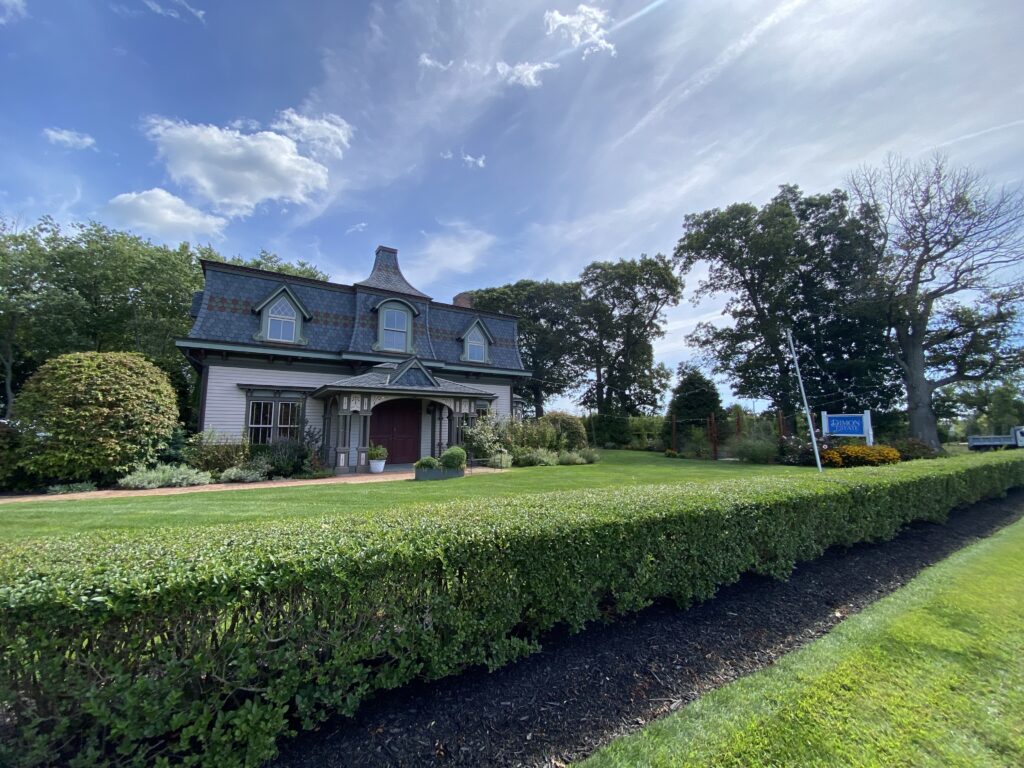Town supervisors discuss State of the East End

Affordable housing, transportation upgrades, legacy industries, business development, workforce retention and environmental challenges dominated the discussion between East End town supervisors at a State of the East End panel organized by Long Island Association on July 9.
Southold Town Supervisor Al Krupski, Riverhead Supervisor Tim Hubbard, Shelter Island Town Supervisor Amber Brach-Williams, Southampton Town Supervisor Maria Moore and East Hampton Town Supervisor Kathee Burke-Gonzalez mulled the issues that affect life in their respective locales, be it seasonal, year-long or in the future.
When asked about top priorities, Mr. Hubbard discussed the highly-anticipated Town Square project, which has received multiple federal, state and county funding grants over the years, including a $24 million federal RAISE grant and $10 million state Downtown Revitalization grant.
The Town Square project has six components: the upper and lower Town Square, the amphitheater, “complete streets” or streetscapes, a boutique hotel and a parking garage. With its groundbreaking coming up soon, Mr. Hubbard said the project would be a “first of its kind on the East End of Long Island.” The supervisor expressed excitement for Riverhead’s continued revitalization efforts towards becoming a destination town.
“When traffic would come out to the East End in the summertime, it would drive through Riverhead to get to Southold, it would drive through Riverhead to get to the South Shore. Now, they’re actually stopping in Riverhead because we have so many destinations,” Mr. Hubbard said. “Between the [Long Island] Aquarium, Splish Splash, wineries, breweries, our beaches, Briermere Farms — we have so much for people to stop and enjoy.”
Mr. Krupski reiterated the town’s commitment to increasing the inventory of accessory dwelling units, commonly known as ADUs, to address the affordability crisis and housing inventory shortage.
“It kind of spreads out that housing throughout the whole town,” he said. “So, you’re not looking at one project that’s kind of dominating one area.”
The construction of ADUs has been slow rolling, but Mr. Krupski said the Town Board is working to adjust its processes to increase the success rate. Southold also recently hired a community development project supervisor for its Community Housing Plan to help streamline housing projects in the town.
Southold’s ongoing zoning update, its first comprehensive overhaul since 1989, included an as-of-right caretaker unit in its draft to help business owners, Mr. Krupski said. This would allow businesses to keep at least one employee on site at all times, something the supervisor is hopeful would alleviate traffic in the area during busier seasons.
The zoning update has not been finalized and voted on yet, as its public comment period closes July 18.
Rail service restoration to the former Peconic, Southold and Cutchogue stations is something Mr. Krupski posited to increase train traffic to the area.
Transformational, economic development was another topic brought up during the panel discussion, including the redevelopment of Enterprise Park at Calverton — commonly referred to as EPCAL. The 2,900-acre property was formerly the site for the Naval Weapons Industrial Reserve Plant, contains a 10,000-foot runway and rail access under development, and is near major highways.
Calverton Aviation & Technology sued the town last year in hopes of resurrecting its $40 million purchase deal after the town canceled a 2018 contract to sell CAT more than 1,600 acres of EPCAL land.
When asked about his vision for the site, Mr. Hubbard said he sees it as what the U.S. Navy intended for it to be: an economic driver for Riverhead Town with “environmentally safe and high-paying technology jobs.”
“It’s in litigation right now, so there’s not a lot I can talk about, but the fact is you need to develop that land into high-paying jobs, technology [and] aviation type jobs,” Mr. Hubbard said. “I’m not saying an airport … but you can build jet engines there, helicopter engines, and these types of jobs will pay a salary where young people, especially, can afford to stay and live on Long Island.”
Mr. Hubbard stressed Riverhead Town’s commitment to buying local and supporting the community’s mom-and-pop shops amid the growth of big box retailers in the area. He also spoke about improving internet services in the area and how the town would welcome more variety in cable providers.
The participating supervisors also touched on how recent federal policy changes have impacted decisions at the municipal level. For Riverhead, specifically, Mr. Hubbard said local organizations have been asking for monetary support from the town because their federal and state funding has been cut.
“The Family Service League [in Riverhead], they provide programs that are much needed — you can’t afford to lose some of these programs, but [the federal government] is asking for now the towns to dip into their monies,” Mr. Hubbard said. “We have to go to our residents and our taxpayers and say, ‘Hey, you know, we’re probably going to pierce the tax cap again’ … We just need to think about explaining to the residents: ‘This is what it is, and this is why it is.’”
Ms. Brach-Williams noted Shelter Island’s limitations for growth, especially for businesses, on the island only accessible by ferry. In order to preserve the island’s diverse community of private businesses, the supervisor said the town needs to adjust its site plan review and make it less onerous, cumbersome and time consuming.
“Like the rest of the East End, we are so lucky,” Ms. Brach-Williams said. “We have such natural beauty. We have a diverse community of year-round homeowners, second homeowners and seasonal visitors.
“And we all have the same goal, which is to maintain the environmentally beautiful place we live in,” she said. “So, we do tend to all work together.”









